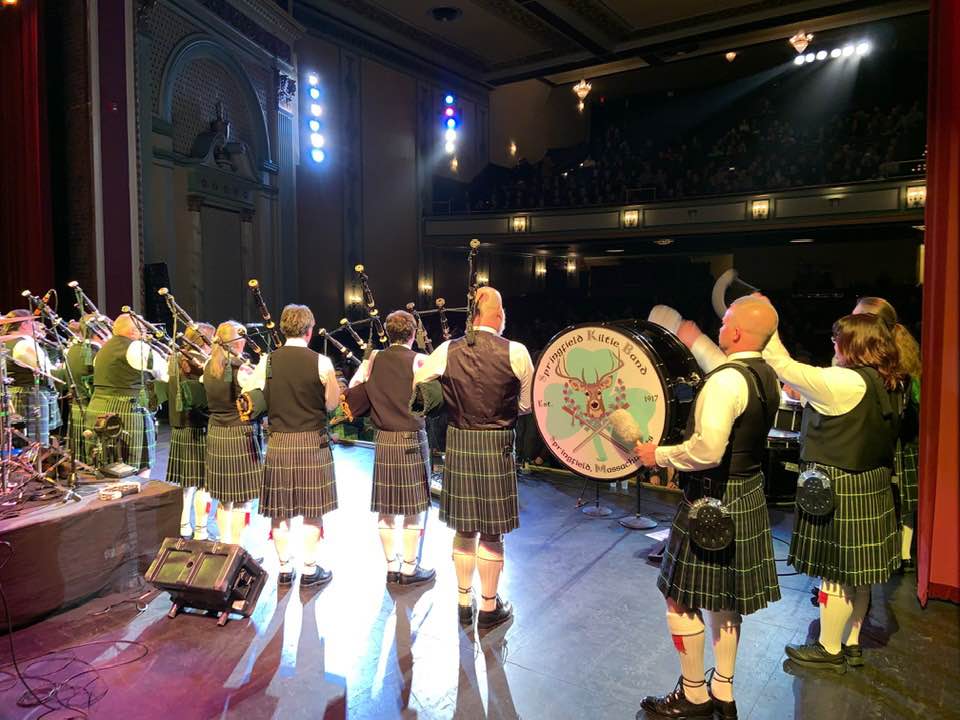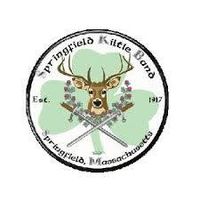The Springfield Kiltie Band is one of the longest running pipe bands in U.S. history. The band offers free instruction in piping and Scottish drumming to anyone who joins the band. Lessons are held on Monday at 7pm in the upstairs hall at the John Boyle O’Reilly Club at 33 Progress Ave. Springfield, MA 01104. All are welcome!
About Learning to Play the Great Highland Bagpipes:
If you are just starting out, don’t rush out and buy a set of bagpipes yet! You will start on a practice chanter (the band will help you select the proper chanter and sometimes offers chanters for new students for a small donation). Like a recorder, a practice chanter is a mouthblown instrument that allows you to learn instrument fingering, embellishments (a special musical notation/style that squeezes a lot of notes just before you play the main note), and new tunes. You’ll continue to use your practice chanter even after you are playing the full bagpipes, so getting the right one from the start is important.
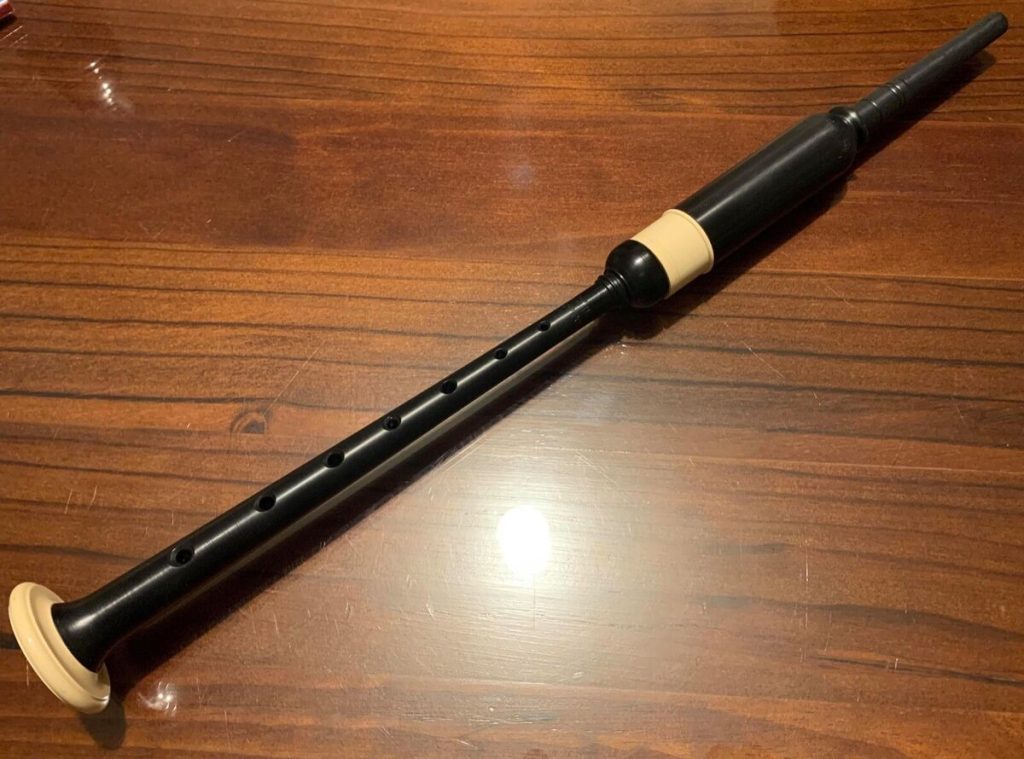
The key to succeeding with bagpipes is practice, practice, and more practice! About 45 minutes a day is recommended. Students can take from 6 months to a year to work through the fundamentals of blowing, fingering, learning the notes and 4 to 6 basic tunes. After that, it’s time to get a set of the pipes!
The Great Highland Bagpipes
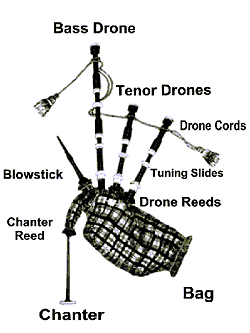
The Great Highland Bagpipes are made up of a bag (now mostly synthetic fabric, three drones, each with a reed, the blowstick (which has a one-way valve to help keep air in the bag), and a chanter with a double reed.
Once your instructor says you are ready, the Band will help you pick out and setup your bagpipes. Over the next six months to a year you’ll begin to gradually get used to keeping the bag filled with air, making the notes from the drones steady, and playing the tunes on the chanter. There’ll be lots of encouragement from your fellow pipers!
About Learning to Play the Highland or Scottish Drums
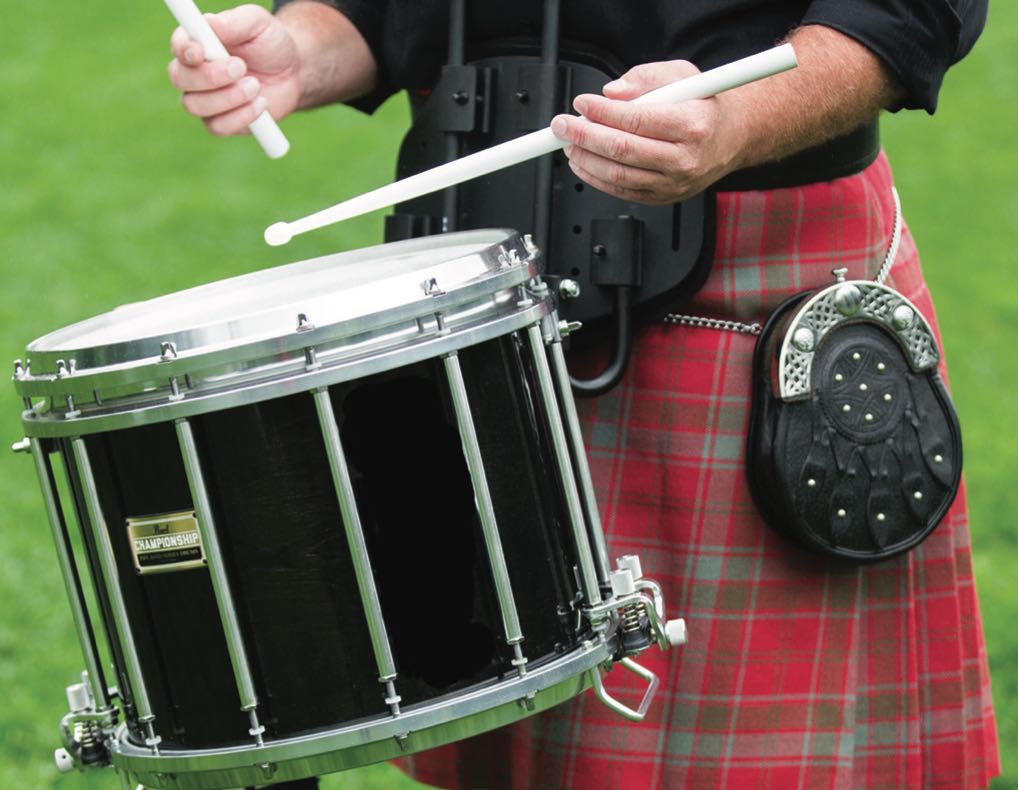
The Band teaches highland drumming, also called Scottish drumming or pipe band drumming on Monday evenings. Students are offered instruction while the pipers are practicing using their practice chanters.
The bands drummers play either snare, tenor, or base drums. Snare drumming requires rapid, coordinated, synchronized playing use both hands. Beginning drummer start learning on a simple drum pad.
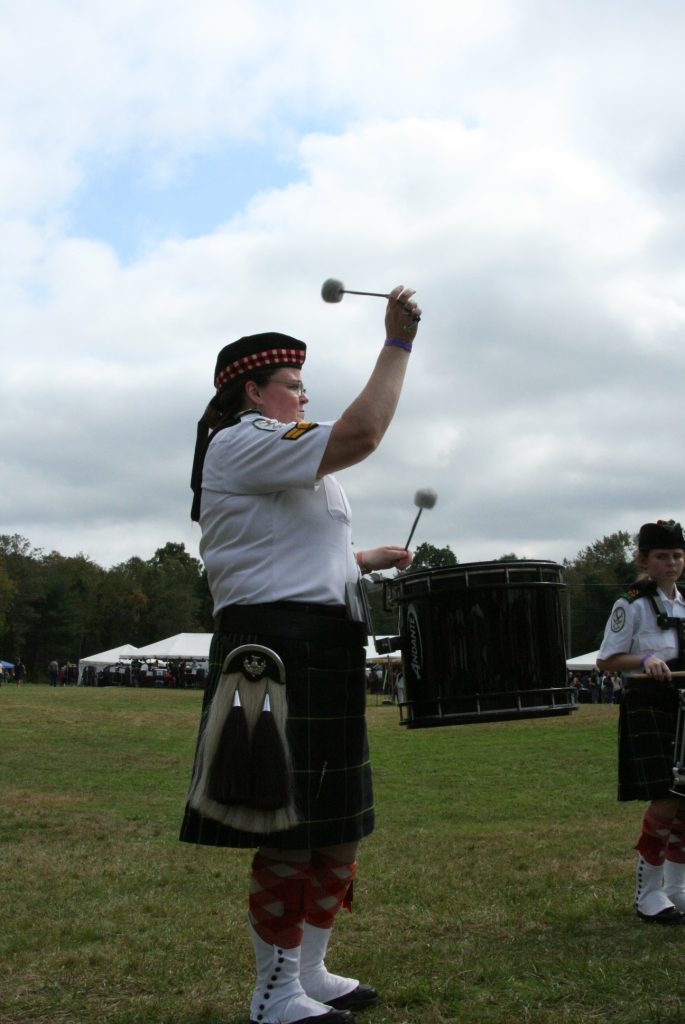
Modern Scottish highland snare drumming is a combination of rudimental drumming and an offbeat swing-style that comes from the jazz and big band traditions of the 1950’s. Our band plays tenor drums with a traditional grip and use very high tension drum heads. You’ll see a typical tenor drummer with two mallets or swinging drum sticks. These sticks have a round, soft ball at the end and a thong or leather strap at the other end. Part of the learning involves how to hold these sticks, so that you can add flourish the performance by twirling and spinning them, all while keeping a perfect rhythm!
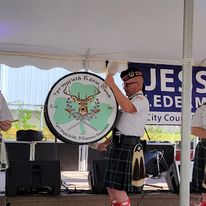
The big drum of the band is a bass drum. This critical instrument provides the steady beat that not only keeps the band in time when playing a tune but also in step when marching in a parade!
Drumming students will need to purchase the appropriate drumsticks and practice pads (about $50). The band provides the drums when you are ready to play!
Reading Music
Many of our beginner students have never read a note of music (either piping or drumming). The band is ready for you! Our instruction includes reading the basic scores for the music we play and understanding musical notation.
Come and See!
If you are interested, fill out the contact form on our website or better yet, stop by one of our Monday night rehearsals. You’ll get a chance to see the pipers practicing with their chanters and the drummers practicing with their drum pads. Stay a bit and you’ll get to hear the entire band playing tunes on the pipes and drums!
